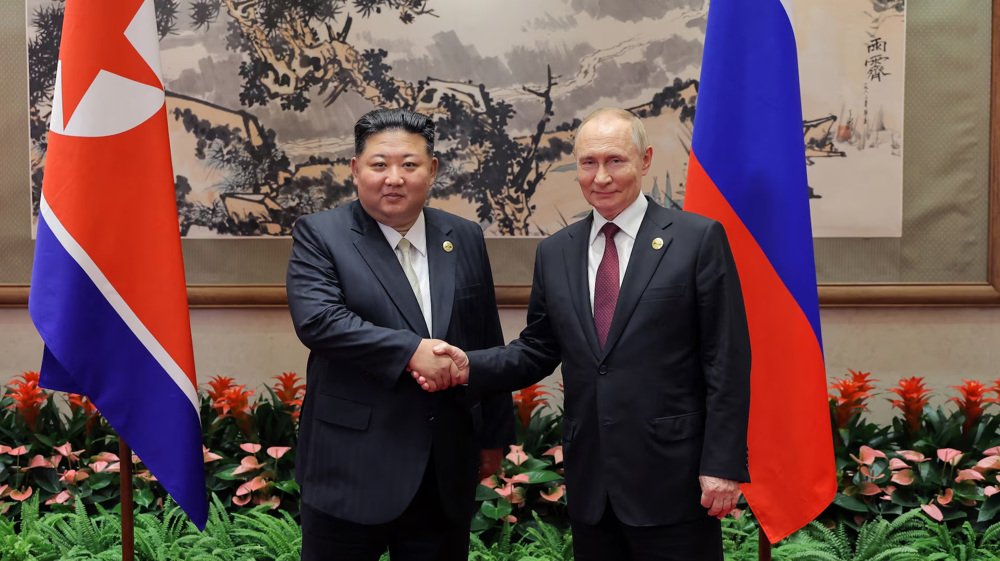Japan condemns N Korea for its fresh ballistic missile tests
Japan's Prime Minister Shinzo Abe says North Korea's launch of two ballistic missiles on Wednesday is "unforgivable" as his country's armed forces are put on high alert.
North Korea launched its most effective test yet of two intermediate-range Musudan missiles on Wednesday that flew about 400 km (250 miles).
"The missile launches today, as with all the others, are a clear violation of the United Nations resolution, and it is unforgivable and we strongly condemn them," Abe said in Tokyo.
Japan's minister of defense said one of the missiles reached an altitude of over 1,000 km (621 miles), showing Pyongyang has made progress developing intermediate-range ballistic missiles.
Japan's Defense Ministry said that the second missile launched on Wednesday morning flew 400 km (248 miles) before falling into the Sea of Japan.
The launches came despite US-led warnings and a series of UN Security Council resolutions that ban the North from using ballistic missile technology, which Pyongyang rejects as an infringement of its sovereignty.

The Musudan ballistic missiles can travel to anywhere between 2,500 kilometers and 4,000 kilometers (1,550 to 2,500 miles). The lower-range ones can hit anywhere in South Korea and Japan, while the long-range ones can target US military bases on Guam, in the northwestern Pacific Ocean.
Earlier in the day, Japan put its military on high alert after reports surfaced that signs have been detected of a possible missile launch by Pyongyang.
The Japanese military ordered its naval destroyers and anti-ballistic missile Patriot batteries to be prepared for targeting and destroying any projectile heading from the North towards Japan.
In Seoul, South Korea's presidential office said a national security meeting would be convened later on Wednesday to discuss the latest missile launches.
The two Koreas technically remain in a state of war after the 1950-53 Korean War ended in an armistice, not a peace treaty.
In January, North Korea said it had successfully detonated a hydrogen bomb, its fourth nuclear test, and vowed to build up its nuclear program as deterrence against potential aggression from the US and its regional allies.
A month later, Pyongyang launched a long-range rocket which it said placed an earth observation satellite into orbit. However, Washington and Seoul denounced it as a cover for an intercontinental ballistic missile test.
Pyongyang was recently placed under the toughest UN sanctions in two decades but the country has pledged not to relinquish its nuclear power unless the US ends its hostile policy and dissolves the US-led military command in South Korea.
Washington holds joint military maneuvers with Seoul, which Pyongyang views as preparations for war and a direct threat against its security.
VIDEO | Press TV's news headlines
Hamas: Israel escalating ceasefire violations in Gaza
Venezuela's government declares unwavering unity behind Maduro
VIDEO | Global outcry over Venezuela president abduction
Iran keeps wheat import subsidies despite cutting other food supports
Venezuelan military stands with acting president after US kidnapping of Maduro
VIDEO | Press TV's news headlines
VIDEO | Protesters in Toronto slam US kidnapping of Venezuelan president












 This makes it easy to access the Press TV website
This makes it easy to access the Press TV website